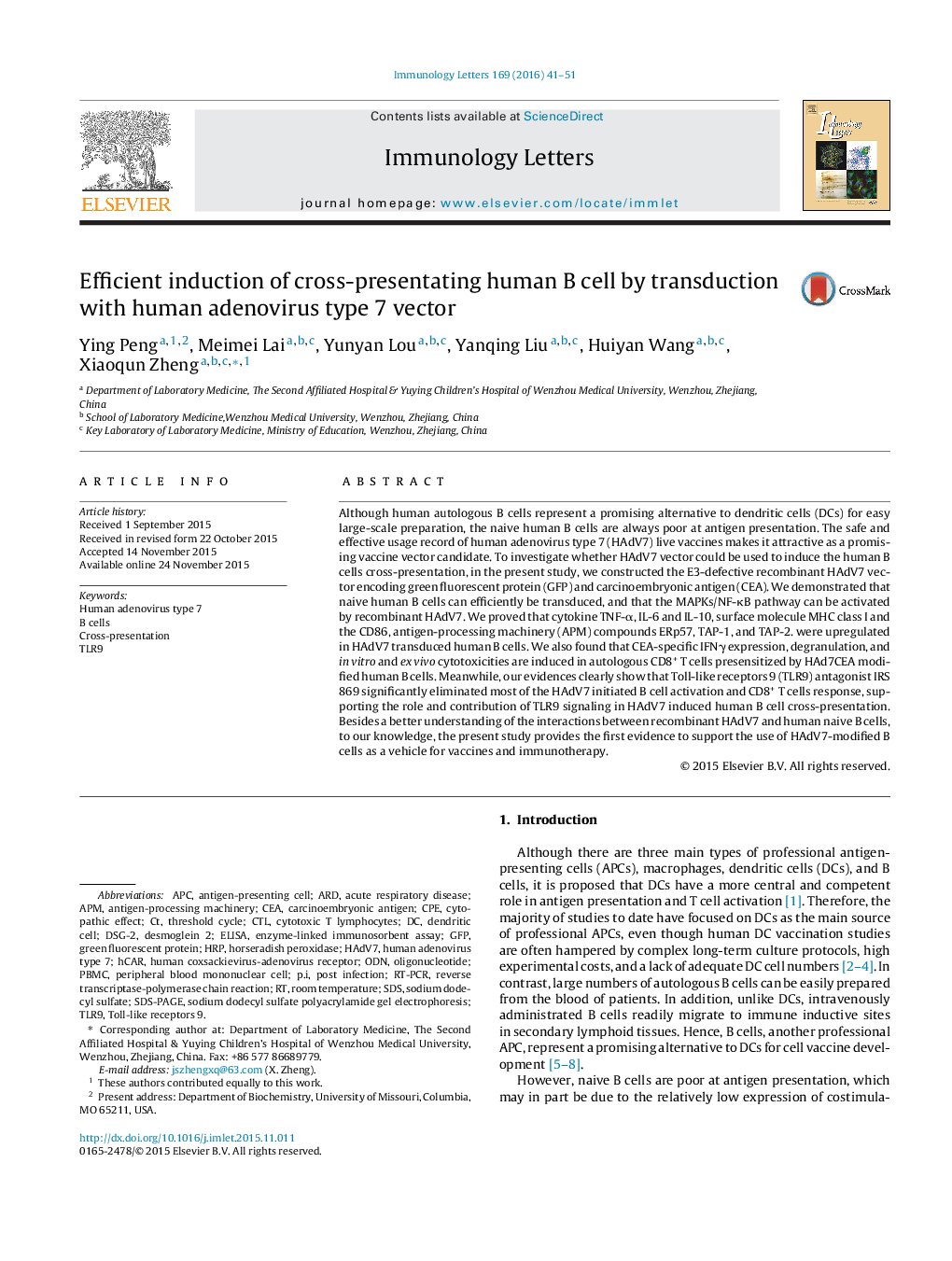| Article ID | Journal | Published Year | Pages | File Type |
|---|---|---|---|---|
| 3355293 | Immunology Letters | 2016 | 11 Pages |
•We demonstrated naive human B cells can be efficiently transduced by recombinant HAdV7.•We observed HAdV7 transduction increased the expression of molecules involved in human B cell cross-presentation.•We found that CEA-specific CD8+ T cells are induced by HAd7CEA modified autologous B cells.•We proved that HAdV7-initiated TLR9 signaling is involved in and necessary for effective B cell cross-presentation.
Although human autologous B cells represent a promising alternative to dendritic cells (DCs) for easy large-scale preparation, the naive human B cells are always poor at antigen presentation. The safe and effective usage record of human adenovirus type 7 (HAdV7) live vaccines makes it attractive as a promising vaccine vector candidate. To investigate whether HAdV7 vector could be used to induce the human B cells cross-presentation, in the present study, we constructed the E3-defective recombinant HAdV7 vector encoding green fluorescent protein (GFP) and carcinoembryonic antigen (CEA). We demonstrated that naive human B cells can efficiently be transduced, and that the MAPKs/NF-κB pathway can be activated by recombinant HAdV7. We proved that cytokine TNF-α, IL-6 and IL-10, surface molecule MHC class I and the CD86, antigen-processing machinery (APM) compounds ERp57, TAP-1, and TAP-2. were upregulated in HAdV7 transduced human B cells. We also found that CEA-specific IFNγ expression, degranulation, and in vitro and ex vivo cytotoxicities are induced in autologous CD8+ T cells presensitized by HAd7CEA modified human B cells. Meanwhile, our evidences clearly show that Toll-like receptors 9 (TLR9) antagonist IRS 869 significantly eliminated most of the HAdV7 initiated B cell activation and CD8+ T cells response, supporting the role and contribution of TLR9 signaling in HAdV7 induced human B cell cross-presentation. Besides a better understanding of the interactions between recombinant HAdV7 and human naive B cells, to our knowledge, the present study provides the first evidence to support the use of HAdV7-modified B cells as a vehicle for vaccines and immunotherapy.
